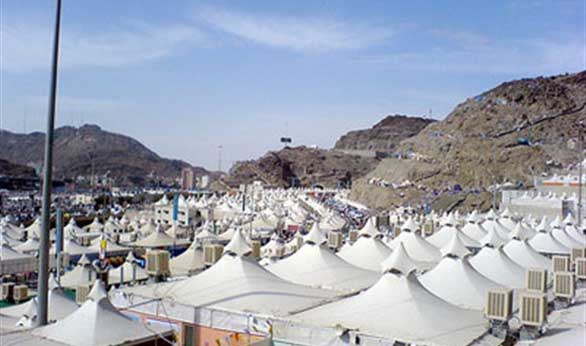Dar al-Iftaa permits weak and ill pilgrims to omit the overnight stay at Mina and commission others to stone on their behalf

Dar al-Iftaa maintained that it is permissible in Islamic law for weak and ill pilgrims—males and females—to omit the overnight stay at Mina as it is likewise permissible for them to commission others to stone on their behalf.
A fatwa issued by Dar al-Ifta said that it is known that along with the other rites of hajj, obligating a pilgrim to stay overnight stay at Mina only increases his exhaustion and weakness, placing his body to its weakest state. In addition, a pilgrim’s health is further compromised due to the spread of epidemics and fatal diseases that are easily spread in crowded places and which have become a global phenomenon. And because there is no doubt that women, children, the ill, and the weak, are the most susceptible to such harm, Dar al-Ifta maintained that it is only fitting to extend to them the ruling for those who have been granted the dispensation to omit the overnight stay at Mina, especially since it is not among the pillars of hajj according to all of the followed schools of jurisprudence.
There is an increased need at present to facilitate fatwas on hajj and its rulings. It is wise to take into consideration the conditions of the pilgrims so that they may avoid possible diseases and epidemics until they return to their families in good health by the will of God, the Almighty. This is especially so due to the capaciousness afforded by God with regards to crowded places and particularly since there is a scholarly contention over the overnight stay at Mina during the days of tashriq. Though the majority of scholars maintained that the overnight stay at Mina is a duty, they granted a dispensation to those who have a legal excuse to omit it. The omittance of this rite does not make a pilgrim blameworthy, he does not have to make expiation, nor is his action disliked. There is no doubt that fear of contracting a disease is among the legitimate excuses for not spending the night at Mina that Islamic law takes into consideration.
The fatwa mentioned that protecting pilgrims’ lives is a legal duty. The importance of this is based on the hadith in which the Messenger of God said when looking at the Ka’ba, “Greetings O House [of God]! How great you are and how great is your sanctity. The sanctity of a Muslim is greater in the eyes of God.”
The fatwa implied that protecting lives is among the important objectives of Islamic law. One of the maxims of Islamic law states that avoiding evil takes precedence over achieving an interest; this applies to a situation where there is a conflict of interests and harm. It is moreover established that when two interests conflict, it is necessary to reconcile between them or give precedence to the more important interest.
Although a believer always aspires to perform the obligation of hajj, God has made it obligatory only upon those who are capable of performing it.
In its response to an inquiry, the Fatwa Council at Dar al-Ifta confirmed the legal permissibility of commissioning another to stone on behalf of a pilgrim who is a female, ill, or weak. The legal premise for this is the permissibility of commissioning another to perform hajj of one’s behalf.
For this reason, commissioning another to stone on one’s behalf is of greater precedence. This is because hajj involves more than the rite of stoning. Commissioning another to stone on one’s behalf is a dispensation for those who have an excuse preventing them from performing the rite themselves. Many scholars have mentioned matters other than those cited in the Primary texts by way of applying primary texts to secondary issues. Examples include those who fear for their lives or property, care-givers, and those attending to pilgrims’ needs.
 Arabic
Arabic French
French Deutsch
Deutsch Urdu
Urdu Pashto
Pashto Swahili
Swahili Hausa
Hausa
